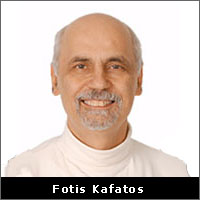Dedicated to excellence: the ERC's Scientific Council
What is exciting researchers most about the new European Research Council (ERC), launched on 27 February, is the promise that projects will be selected for funding solely on the basis of excellence. But how can this excellence be guaranteed? The ERC's Scientific Council, comprising 22 renowned scientists from around Europe, is charged with ensuring that the ERC promotes excellence. Led by Fotis Kafatos, Chair of Immunogenomics at Imperial College London and originally from Greece, the Scientific Council must not only set the ERC's scientific strategy, but appoint panels of experts to review every project proposal that the ERC receives. According to Scientific Council member Wendy Hall, Head of the School of Electronics and Computer Science at the University of Southampton in the UK, those within the Scientific Council may disagree on detail, but they all have the same vision: 'to do something different, to find excellence in research.' Professor Kafatos believes that the Scientific Council is essential. 'It is led by experienced scientists who are not here for their own benefit,' he told the launch conference. This view was echoed by two members of the Scientific Council who spoke to CORDIS News: Alain Peyraube, Director of Research at the French national centre for scientific research (CNRS), and Maria Teresa Lago, a professor at the University of Porto in Portugal. Both emphasised that they are representing neither their country, nor their scientific discipline, in the Council. Both also emphasised how proud they were to be proposed and selected for the Scientific Council, and what a privilege it is for them. The Council's workload is not light. Initially its members were expecting to meet four times per year. At the moment they are meeting every month for two days, and even come away with homework. Professor Kafatos paid tribute to the dedication of the members of the Scientific Council. Some are approaching retirement age, and many had 'different plans for how to spend their days,' he said. But each of the 22 members is working so hard for a reason. 'We are dedicating ourselves as persons to a great idea,' said Professor Kafatos. The ERC's President is also aware of current limitations, but at the same time optimistic that these can be overcome: 'I don't think it [the ERC] will have all the answers. We don't know everything. We're not arrogant. But we will find all the answers,' he promised. Professor Kafatos finished his address on this optimistic note: 'Let me give you a promise: it will succeed it's not a question of whether,' he said. If the commitment of the Scientific Council is anything to go by, the ERC certainly will succeed.



